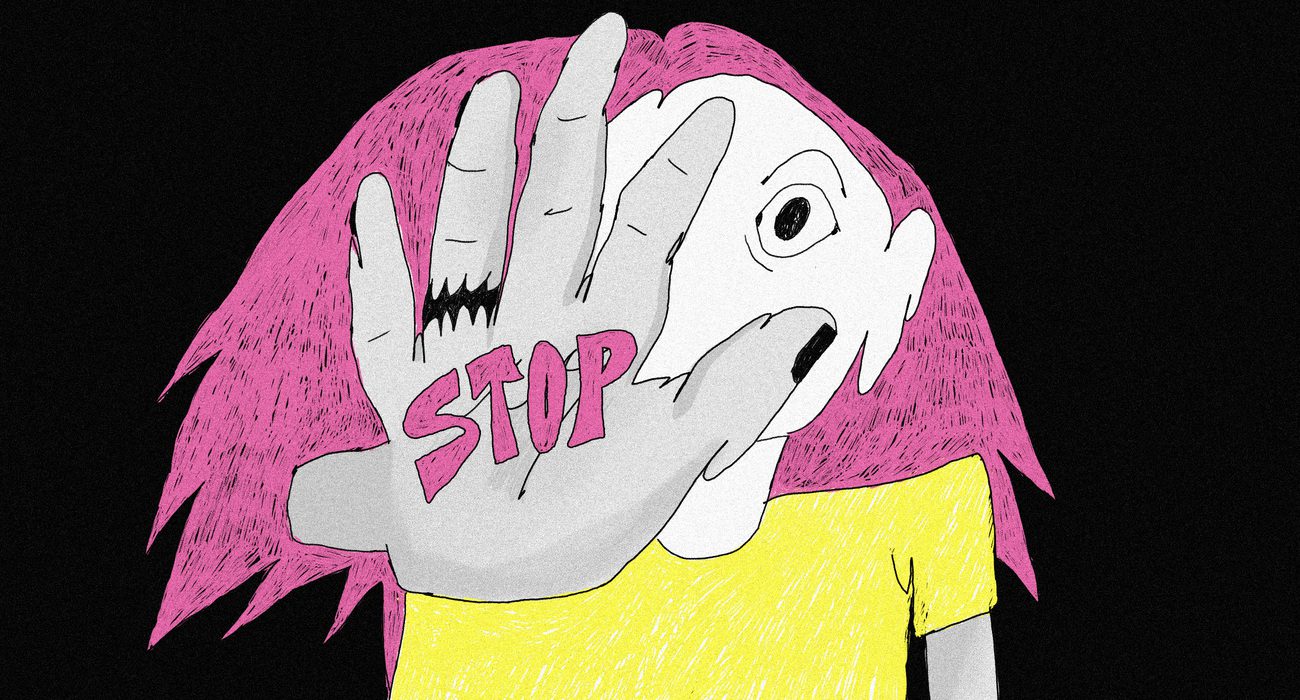Ukraine Introduces Liability for Sexual Harassment. How Will It Work?

Ukraine has strengthened its response to violence against women and domestic violence in connection with the ratification of the Istanbul Convention. The law, which took almost a year and a half from submission to the Verkhovna Rada to the president’s signature, will come into force six months after its publication.
Specially for Zaborona, journalist Olena Sulikovska spoke with human rights activists about the changes introduced by the document.
Sexual harassment: Punishment
The new law effectively coordinates Ukrainian legislation on ensuring equal rights between men and women, as well as the rules on administrative offenses.
According to it, offensive, humiliating actions of sexual nature, expressed verbally or non-verbally, including through the use of electronic communications, are punishable by fines (from UAH 1,360 to 2,720), community service (from 20 to 40 hours), correctional labor (one month with a 20% deduction of earnings), and administrative arrest for up to 15 days.

Taisa Rubanyak, a lawyer and expert on preventing and combating domestic violence, notes that the definition of sexual harassment and the procedure for prosecuting it is one of the most positive changes in the new law.
“Ukrainian legislation did not define sexual harassment, nor did it provide for liability for committing this offense. If until now there have been myths about sexual harassment as an invention of ‘inadequate ladies’ deprived of attention, now we will get the visibility of this crime in our society,” the human rights activist says.
She draws an analogy to domestic violence before 2018: until the legislation was changed, there was no clear definition or form of protection. That particular legislation introduced responsibility for psychological, economic, and physical violence.
Minors are considered victims if they were present when domestic or gender-based violence was committed. Administrative liability is established for this. Minors between the ages of 16 and 18 are liable for domestic violence on a general basis. The same applies to sexual harassment.

Illustration: Kateryna Kruhlyk / Zaborona
Programs for offenders and increased administrative penalties
Previously, Article 22 of the Code of Ukraine “On Administrative Offenses” provided for the possibility of exemption from administrative liability on the grounds of insignificance. That is, offenders could only receive a verbal reprimand. This has now been canceled.
Among other things, the law also establishes administrative liability for gender-based violence. In particular, it increases administrative detention in cases of domestic violence, gender-based violence, or failure to comply with an urgent restraining order. Thus, in some cases to identify the person or clarify the circumstances of the offense, detention may be extended to 12 hours.
In particular, when considering cases of administrative offenses related to domestic and gender-based violence, courts will be able to refer offenders to a correctional program. This is a comprehensive program based on the results of a risk assessment. It is aimed at changing the violent behavior of the offender and forming a new non-aggressive model of behavior in private relationships, responsible attitude to actions and their consequences, including child-rearing. It is also aimed at eradicating discriminatory ideas about the social roles or responsibilities of women and men, explains Yulia Dmytruk, a lawyer at La Strada-Ukraine NGO.

According to her, this norm is not new in the legislation, as it is provided for in the Law of Ukraine “On Preventing and Combating Domestic Violence”. However, it was rarely used before, because few specialists on the ground could implement this program in communities.
At the same time, Taisa Rubaniak doubts that Ukraine currently has enough human and financial resources to fully implement the program.
“The rehabilitation program for the perpetrator needs to involve psychologists, social workers, and other professionals who will work for him or her. The Istanbul Convention provides for a correctional program, and so does our legislation. But are we ready to implement this program if the offender pays a fine of, say, 340 hryvnias, but 34 000 hryvnias are spent on the program for him?” Rubaniak says.
How to record a sexual crime?
If a person is subjected to any signs of violence, it is necessary to contact the police, emphasizes human rights activist Taisa Rubaniak. As for the evidence base, you need to keep correspondence and screenshots. If the violence took place in a place where there were cameras (a square, a park, a store etc.), law enforcement officers can consider the recordings as evidence.
If an attack occurs unexpectedly, and there are no witnesses, video or audio recordings, or where there are no signs of injury on the victim’s body, it will be difficult to bring the offender to justice. But in any case, it is worth filing a statement with the police so that preventive and explanatory conversations can be held with the attacker (provided that he or she can be identified), says lawyer Yulia Dmytruk.
In her experience, for proper prosecution, it is important to show law enforcement officers the repetition of several episodes of violence. And they don’t have to be of the same type. In this case, the offender will not be able to avoid punishment. After all, even if they manage to avoid serious responsibility for their actions the first time, the appeal will matter if the crime is repeated.
In addition to law enforcement agencies, citizens can contact the National Hotline for the Prevention of Domestic Violence, Human Trafficking, and Gender Discrimination: 0800 500 335 or 116 123 (the line is anonymous, confidential, and operates 24/7).

Illustration: Kateryna Kruhlyk / Zaborona
What is the Istanbul Convention?
The Istanbul Convention is an international agreement of the Council of Europe on violence against women and domestic violence. It covers measures to prevent and combat violence, protect its victims, and prosecute and punish offenders.
The document establishes criminal liability for:
- psychological violence;
- physical violence;
- persecution;
- sexual violence (rape and sexual harassment);
- forced marriage;
- female genital mutilation;
- forced abortion;
- sterilization.
The Convention was opened for signature in Istanbul on May 11, 2011, and entered into force three years later on August 1, 2014. Turkey was the first country to ratify it, followed by dozens of others. Among them is Ukraine, which has undertaken several commitments, including to properly investigate the facts of violence and bring perpetrators to justice.
In May 2020, a petition to ratify the Istanbul Convention on the president’s website received more than 25,000 votes. It was only on June 21, 2022, that President Volodymyr Zelensky signed the document on its ratification.






